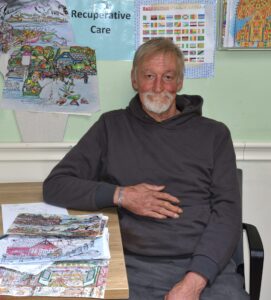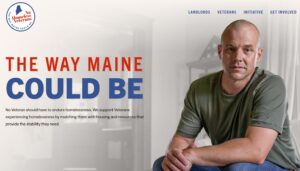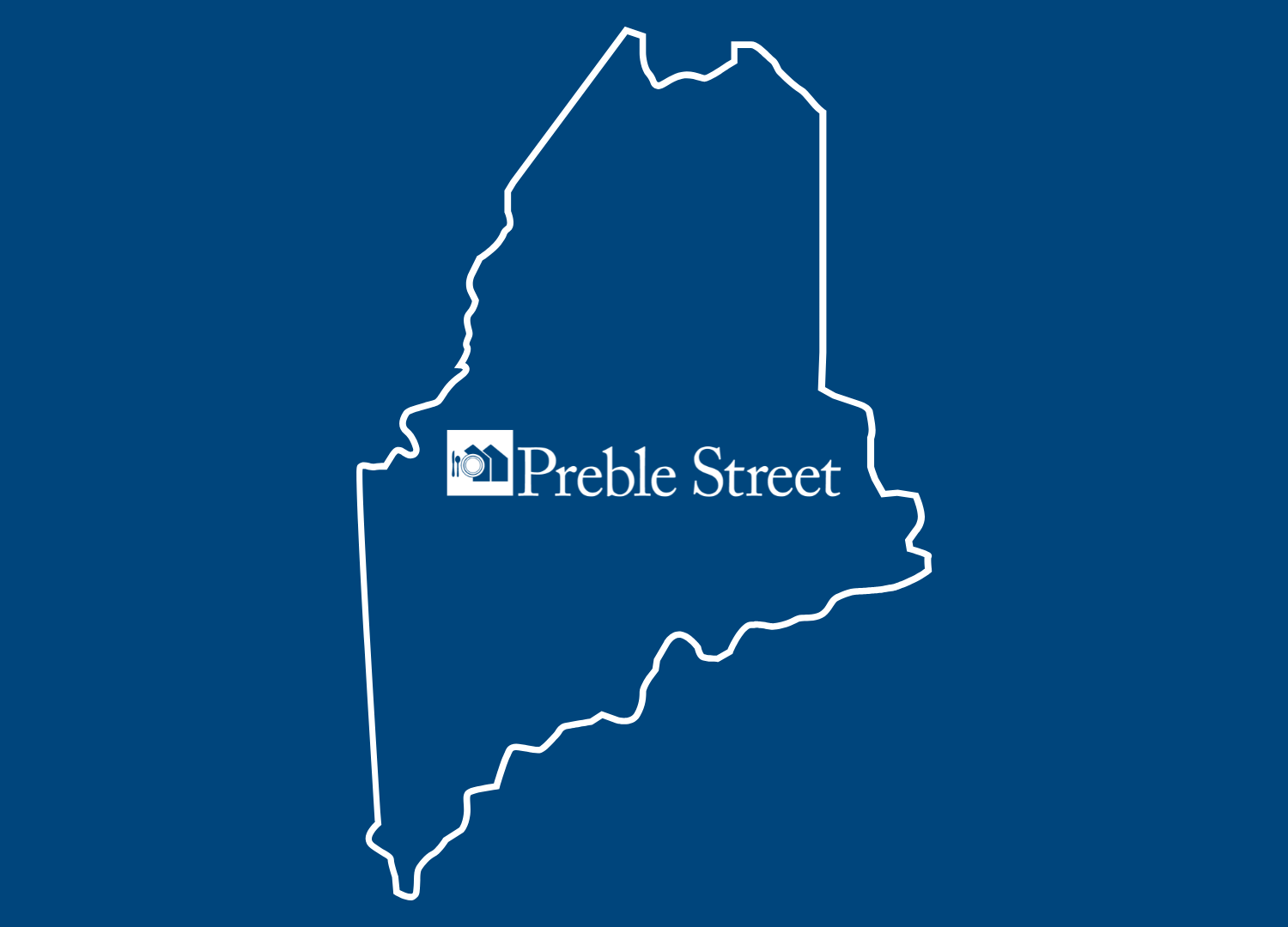From July to October of this year, the Preble Street Rapid Re-Housing program (RRH) helped to move 18 individuals into permanent housing. This represents ten different households or families, moving from the street or a shelter into a warm, safe, and permanent home. No matter a person’s race, income, or where they’re from, everyone needs a home, and the Rapid Re-Housing Team is helping to make this possible for people in Maine.
The Preble Street Rapid Re-Housing program is an evidence-based intervention that uses casework and financial assistance to help individuals and families experiencing homelessness return to housing quickly and not become homeless again. It is a short-term, intensive, housing-focused intervention that has three components: housing identification, move-in support, and rental assistance. Using this approach, the team has been very successful identifying housing for people and families with various needs, finding creative and innovative ways to identify and help move people into housing. But, there is still a voucher freeze in Maine that is impacting the program and their ability to move people quickly into housing.
The Rapid Re-Housing Team hosted more than a dozen service providers, representatives from Senator Collins’ office, and the Mayor of Auburn at a community gathering to celebrate the expansion of the program to Lewiston-Auburn.
The team is working to expand their work and impact for people in Maine. This summer, thanks to support from the City of Auburn, they expanded services to the Lewiston-Auburn area, with the goal to serve a total of 35 people in their first year. They are also adding a new caseworker position to their team in Portland that will work closely with staff at the MaineHealth-Preble Street Learning Collaborative.
For many people, their first point of contact with Preble Street is the Learning Collaborative. The Learning Collaborative is a low-barrier medical clinic, where people who are experiencing homelessness can go for help with basic needs and get medical care for acute injuries and illnesses. This program is based in Portland, ME, and serves some of the most vulnerable people in the city, who live outside, in shelters, and in places not meant for human habitation.
The new caseworker with Rapid Re-Housing will help reach and enroll people who access care at the Learning Collaborative and use Preble Street’s Health Services, spending much of their time at the Learning Collaborative and on the new MaineHealth CONNECT Van, a low-barrier, mobile health outreach program that provides psychiatric care and connects people to other community-based health resources. In its first year, the goal for this role is to help house 12-15 individuals and families.
By expanding its footprint and creating new caseworker positions to connect with more individuals, the Rapid Re-Housing Team is helping to make housing accessible for all people in Maine.
How to connect to Rapid Re-Housing Services
All referrals are completed through Coordinated Entry. Interested individuals must complete a Coordinated Entry Assessment with an Access Point Provider. Many social service and outreach providers act as Access Points.
If you need help identifying the appropriate access point, please reach out to 211Maine or the Hub 2 Coordinator for Cumberland County, Nakesha Warren, nwarren@uwsme.org, or the Hub 4 Coordinator for Androscoggin County, Julia Kimball, jkimball@lewistonhousing.org. Once a Coordinated Entry assessment is complete, names are added to a list and matched with the program when there is capacity.
In order to be enrolled with RRH, participants must be homeless as defined by HUD (sleeping in emergency shelter, unsheltered/in a place not meant for human habitation, in a hotel/motel paid for by a third party, etc.) or fleeing/attempting to flee domestic violence (including dating violence, sexual assault, stalking, human trafficking, and other dangerous or life threatening conditions that relate to violence)
Continue reading...

Brian’s Story
Sitting at a table at the Recuperative Care Program (RCP), Brian lays out pages of his art. “I’m working on making a children’s coloring book,” he says. Most of the pieces he has laid out are of captivating coastal scenes featuring birds, boats, and buoys. The longer you look at each page, the more you’ll

Anti-Trafficking Services at risk without federal funds
Pictured: Most of the Preble Street ATS team, in front of a portrait of dee Clarke, a trafficking survivor who became an inspirational advocate As of October 1, Preble Street Anti-Trafficking Services (ATS) and many other anti-trafficking program providers across the country will be left without a large part of their funding. Since launching in

No Homeless Veterans
Preble Street Veterans Housing Services (VHS), in partnership with other Veterans services agencies* across the state have come together to dramatically reduce Veteran homelessness in Maine. Earlier this month, VHS and partners launched a housing surge to get as many homeless Veterans as possible into housing in the 100 days leading up to Veterans’ Day.
